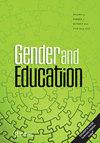The (im)possibility of complaint: on efforts of inverting and (en)countering the university
IF 1.9
3区 教育学
Q2 EDUCATION & EDUCATIONAL RESEARCH
引用次数: 0
Abstract
Over the past decades, research has documented how endemic racism, sexism, and ableism are in academia. Universities have complaint procedures to address these issues. Much research focuses on individual experiences of making a complaint and the institutional uptake of complaints and demonstrates how such ‘isms’ are located in the individual rather than in the institution. This paper instead scrutinizes how complaint procedures mask and reproduce the structures with which complaints are concerned resulting in the complaints’ limited transformative abilities. I demonstrate how complaint procedures only allow for treating complaints as isolated, singular and unusual events that require temporary solutions, which ensures that complaints and complaint work are peripheralized while the white patriarchal ableist core of universities remains intact. Complaints as efforts of inverting the white patriarchal university are too limited as they are quickly reverted. Hence, what is needed is more than a mere procedure but a total inversion of the institution to make difference fit which requires work that goes in and beyond one’s institution.投诉的可能性:关于扭转和(或)反对大学的努力
在过去的几十年里,研究记录了学术界普遍存在的种族主义、性别歧视和残疾歧视。大学有投诉程序来解决这些问题。许多研究集中在个人投诉的经历和机构对投诉的吸收,并展示了这些“主义”是如何定位于个人而不是机构的。相反,本文仔细研究了投诉程序如何掩盖和再现投诉所涉及的结构,从而导致投诉的有限转化能力。我展示了投诉程序如何只允许将投诉视为孤立的、单一的和不寻常的事件,需要临时解决方案,这确保了投诉和投诉工作被边缘化,而白人父权制的大学核心仍然完好无损。作为扭转白人父权制大学的努力的抱怨太过有限,因为它们很快就会恢复原状。因此,所需要的不仅仅是一个程序,而是一个制度的完全反转,以使差异适应,这需要在一个人的制度内外进行工作。
本文章由计算机程序翻译,如有差异,请以英文原文为准。
求助全文
约1分钟内获得全文
求助全文
来源期刊

Gender and Education
EDUCATION & EDUCATIONAL RESEARCH-
CiteScore
5.20
自引率
9.10%
发文量
31
期刊介绍:
Gender and Education grew out of feminist politics and a social justice agenda and is committed to developing multi-disciplinary and critical discussions of gender and education. The journal is particularly interested in the place of gender in relation to other key differences and seeks to further feminist knowledge, philosophies, theory, action and debate. The Editors are actively committed to making the journal an interactive platform that includes global perspectives on education, gender and culture. Submissions to the journal should examine and theorize the interrelated experiences of gendered subjects including women, girls, men, boys, and gender-diverse individuals. Papers should consider how gender shapes and is shaped by other social, cultural, discursive, affective and material dimensions of difference. Gender and Education expects articles to engage in feminist debate, to draw upon a range of theoretical frameworks and to go beyond simple descriptions. Education is interpreted in a broad sense to cover both formal and informal aspects, including pre-school, primary, and secondary education; families and youth cultures inside and outside schools; adult, community, further and higher education; vocational education and training; media education; and parental education.
 求助内容:
求助内容: 应助结果提醒方式:
应助结果提醒方式:


